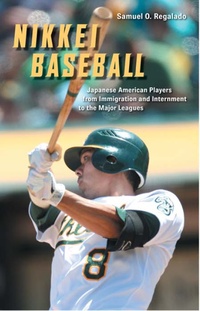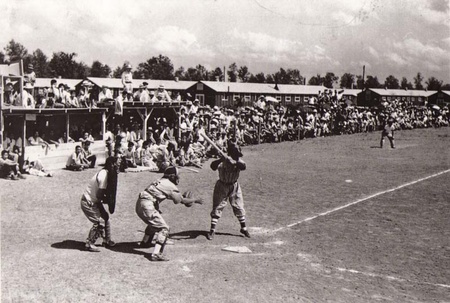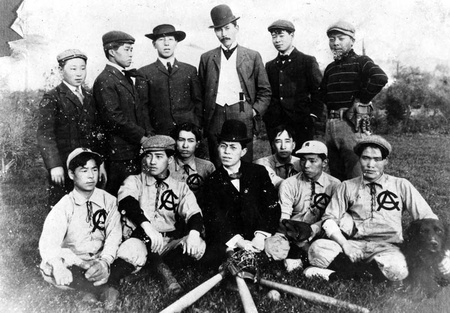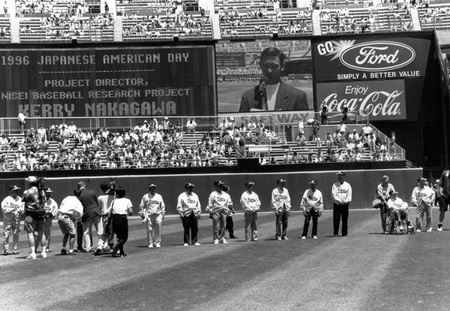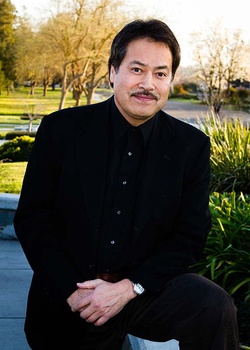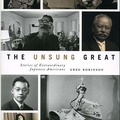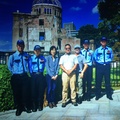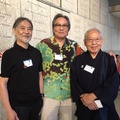“The stories I heard were compelling and vivid,” Samuel O. Regalado says.
The historian and author of Nikkei Baseball: Japanese American Players from Immigration and Internment to the Major Leagues recalls the early years of work on his book.
Regalado was raised in the Los Angeles suburbs and grew up in an ethnically diverse neighborhood. He became aware of Japanese Americans and their hidden legacy in baseball at an early age. Years later, as a scholar, he received a fellowship with the Smithsonian Institution and then turned his curiosity about Nikkei sports into a historical research project. He conducted interviews throughout the American West.
“We talked about their [World War II] experiences and prewar baseball, all kinds of things,” Regalado says. “As such, I came home from my first block of interviews inspired to pursue a book length manuscript with the goal to illuminate the significance of their baseball activities—and that of their predecessors.”
In painstakingly uncovering the story, Regalado recognized that for Japanese Americans, who were unjustly mass incarcerated during World War II, baseball became so much more than just a pastime.
“I felt that they deserved a history that was not trivialized as one simply of their games,” he says. “They deserved one that might be studied and appreciated as an important component of the Nikkei identity in the U.S. And of American history itself.”
In his book, Regalado traces Nikkei baseball from its early roots in the 1870s to the present day.
“Their baseball was not just about competition, but about demonstrating their merit as Americans so that they and their respective communities could get a fair shake,” Regalado adds. “And, in spite of the discrimination and even incarceration that they had encountered, they continued to play the game while displaying their American values.”
“Baseball, in it of itself, did not win them justice,” says Regalado. “But it was a means of expression that its leaders touted in the hope that mainstream Americans might no longer see them as a threat, but simply as peaceful neighbors who also sought to play by the rules in quest for the American dream.”
Regalado says that this history, including the continuing practice of American baseball teams’ exchanges with their Japanese counterparts, is highly relevant to today.
“Beginning with Frank Fukuda’s trips from Seattle and those that, in other communities, continued through the 1930s and immediately following the war, the mission to establish closer cultural ties between the U.S. and Japan through our common love of baseball and temper misunderstandings between Japan and the United States was, among other factors, at the heart of those trips,” says Regalado. “Today, these are the tenets behind Major League Baseball’s ‘World Baseball Classic,’ played every four years. Baseball, as a symbolic ‘cultural bridge’ is something Issei baseball aficionados practiced long before the 21st century.”
Regalado is pleased that some of baseball’s diverse cultural history is receiving additional public attention, through the Japanese American National Museum’s exhibition, Dodgers: Brotherhood of the Game.
“The historian in me must turn to the past to give you two monumental examples of the Dodgers’ tradition in the era of diversity,” Regalado says. “Growing up in Los Angeles and entirely devoted to the Dodgers, as a boy I was most proud of their role to integrate baseball by bringing Jackie Robinson into the majors. As well, and sometimes off the radar screen, the Dodgers, upon their arrival to Los Angeles, were the first team to employ a Spanish-language broadcast team that called games for the entire season. In many circles, Jaime Jarrin is as big a name as is Vin Scully’s.”
Nikkei Baseball is not Regalado’s first foray into the world of ethnic sports. He also previously authored Viva Baseball! Latin Major Leaguers and Their Special Hunger. Writing both books enabled him to notice some interesting parallels.
“Both the Latino and Nikkei players viewed their actions in the larger context,” Regalado notes. “Roberto Clemente, for example, often spoke about his mission to use his baseball platform to better educate the American people about Puerto Ricans and their culture. And Kenichi Zenimura viewed the game as a means to help magnify a positive image for the Nikkei people. As well, Mexican American semi-pro teams in the southwest, like the Issei elders, engaged in baseball with their counterparts in Mexico and Japan so as to impress upon their American-born sons the value of heritage.”
Like the subjects of his studies, Regalado is also interested in nurturing younger generations. As a professor of history at California State University, Stanislaus, he has taught courses in U.S. sport history, U.S. ethnic and immigration history, and a variety of other courses in Asian American and Latin American history.
Some of the responses to his book have been somewhat unexpected. “I got a most intriguing comment from a Ph.D. Student at the University of Tokyo who said he appreciated my use of names in the Japanese style and considered it a sign of respect for the culture,” Regalado says. “In the spirit of constructive engagement, he made some very useful suggestions for me to consider should the book make it to a second edition.”
Regalado is already at work on a number of new projects. He is a co-editor of an upcoming anthology of essays authored by national experts, entitled Sport and the Law. Included in the book is the 1971 Supreme Court case involving Muhammad Ali and the draft. He is considering for his next monograph on the topic of Nikkei women and athletics.
A common theme throughout his work is the important role sports have played in America’s history of race and ethnicity. And, in Nikkei Baseball, he explores how a nation’s pastime can also be a part of a difficult path toward justice.
* * *
On Saturday May 17, 2014 at 2 p.m., author Samuel Regalado will talk about his book, Nikkei Baseball, and the history and importance of baseball in the Japanese American community at the Japanese American National Museum as part of JANM’s Books & Conversations series. The program is free with museum admission.
© 2014 Japanese American National Museum


